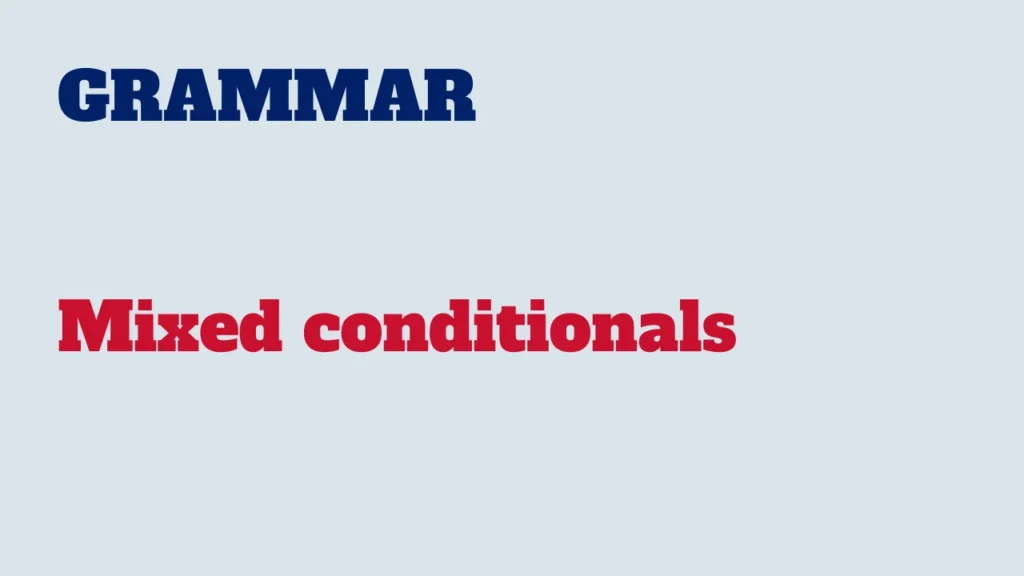English grammar introduces a fascinating concept known as mixed conditionals, where elements of different types of conditionals are combined to express complex relationships between cause and effect.

In this lesson, we’ll delve into the world of mixed conditionals, exploring how these structures allow us to articulate hypothetical situations that span across different points in time.
Basic conditionals recap
Before we venture into mixed conditionals, let’s quickly review the fundamental conditional types:
Zero conditional: States general truths or facts.
Example:
“If you heat water to 100 degrees Celsius, it boils.”
First conditional: Expresses real and likely situations in the present or future.
Example:
“If it rains, I will stay indoors.”
Second conditional: Deals with unreal or unlikely present or future situations.
Example:
“If I had a million dollars, I would travel the world.”
Third conditional: Discusses unreal past situations and their hypothetical outcomes.
Example:
“If you had told me earlier, I would have joined you.”
Mixed conditionals definition
Mixed conditionals involve combining elements of different conditional types within a single sentence, creating a nuanced expression of cause and effect. It allows us to convey complex relationships between actions and their consequences.
Examples of mixed conditionals
Let’s explore a couple of examples to solidify our understanding:
“If I had known, I would have come.”
“If you had studied more, you’d (you would) be better at Math now.”
Present result of a past condition
Mixed conditionals can express the present result of a past condition. In this type of mixed conditional, the condition in the ‘if‘ clause is unreal in the past (expressed with past perfect), and the result in the main clause is in the present conditional.
Examples:
“If it hadn’t rained yesterday, the streets would be dry today.”
If they had invested wisely, they would have more money today.
Past result of present or continuing condition
In this type of mixed conditional, the condition in the ‘if‘ clause is a simple past, and the result in the main clause is expressed with the perfect conditional.
Examples:
If she wasn’t allergic to seafood, she would have tried the paella.
If they didn’t miss the train, they would have arrived on time.
If I wasn’t so busy, I would have attended the conference.
Mastering mixed conditionals opens the door to expressing intricate relationships between causes and effects across different points in time. Whether discussing past regrets, present situations, or future possibilities, mixed conditionals offer a rich and flexible tool for effective communication. By incorporating these structures into your language skills, you can navigate complex hypothetical scenarios with ease. Happy exploring!



